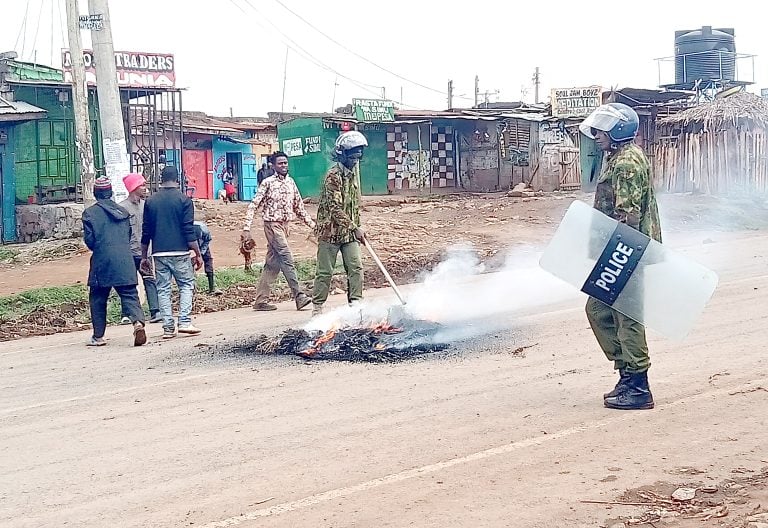It’s time to rethink Kenya’s protest culture

It is disheartening to witness the extent of damage and losses Kenyans have suffered following the recent Saba Saba rally protests.
While it is vital that citizens continue to exercise their democratic rights – including freedom of speech, association, movement, and picketing – these rights do not extend to the destruction of public property or private investments.
We must ask ourselves: when we vent our anger on our fellow Kenyans, what do we gain? When we loot or destroy the businesses of innocent citizens, do we truly address the grievances we are fighting for? The answer is a resounding ‘No.’
That kiosk you burn down, that shop you loot, that matatu you set ablaze – these are not government properties.
They belong to ordinary Kenyans: Wanjiku, Mwenda, Anyango, Atieno, Kariuki, Moraa, Kerubo, Mokami – people just like you and me.
They are not responsible for the failures of the political elite. Their only crime is trying to make an honest living.
The law exists to protect all of us – the able and the differently abled, the powerful and the powerless.
It is in this spirit that the police respond, sometimes with force, to quell violent protests.
We may not always agree with how the State reacts, but the mandate to protect lives and property remains universal.
This brings us to a hard question: What should the police do when protests turn into riots, and officers themselves face threats from crude weapons wielded in the name of democracy?
This is the Achilles’ heel of law enforcement. How do we allow peaceful demonstrations while shielding the country from criminal elements hiding behind political causes?
Peaceful protest is not only a constitutional right. It is a noble act. But sadly, every time there is a planned demonstration, what begins as a call for justice quickly degenerates into chaos.
Genuine issues are overshadowed by hooliganism and political manipulation.
This trend is worrying, not just for the government, but also for the private sector, investors, and the wider business community.
Such protests shake the socio-economic foundation of our nation. We must rethink our approach.
Why not adopt alternative channels for airing grievances?
For instance, aggrieved groups can be allowed to march to designated government institutions – the Treasury, the Judiciary, or the Office of the President – to submit petitions.
Let them receive a response timeline and only escalate the matter if the petition is ignored.
This would preserve the spirit of democracy while minimising destruction.
Rampage, arson, looting, and blocked roads do not serve the democratic cause. They only deepen wounds and divide a country that has fought so hard to unite.
We must refuse to destroy our own country in the name of justice.
Our Constitution provides us with a powerful tool – the ballot box. And 2027, it is as the traditional electoral norm posits.
If those in office have failed us, we can vote them out in the next election.
With elections just two years away, we have an opportunity to effect change through the democratic process.
Let’s not burn Kenya. Let’s not ruin the reputations, livelihoods, and futures of innocent citizens. This country belongs to all of us. Let’s protect it.
The author is a senior writer with People Daily, a media consultant, and an advocate of better governance and greater democracy in Africa














